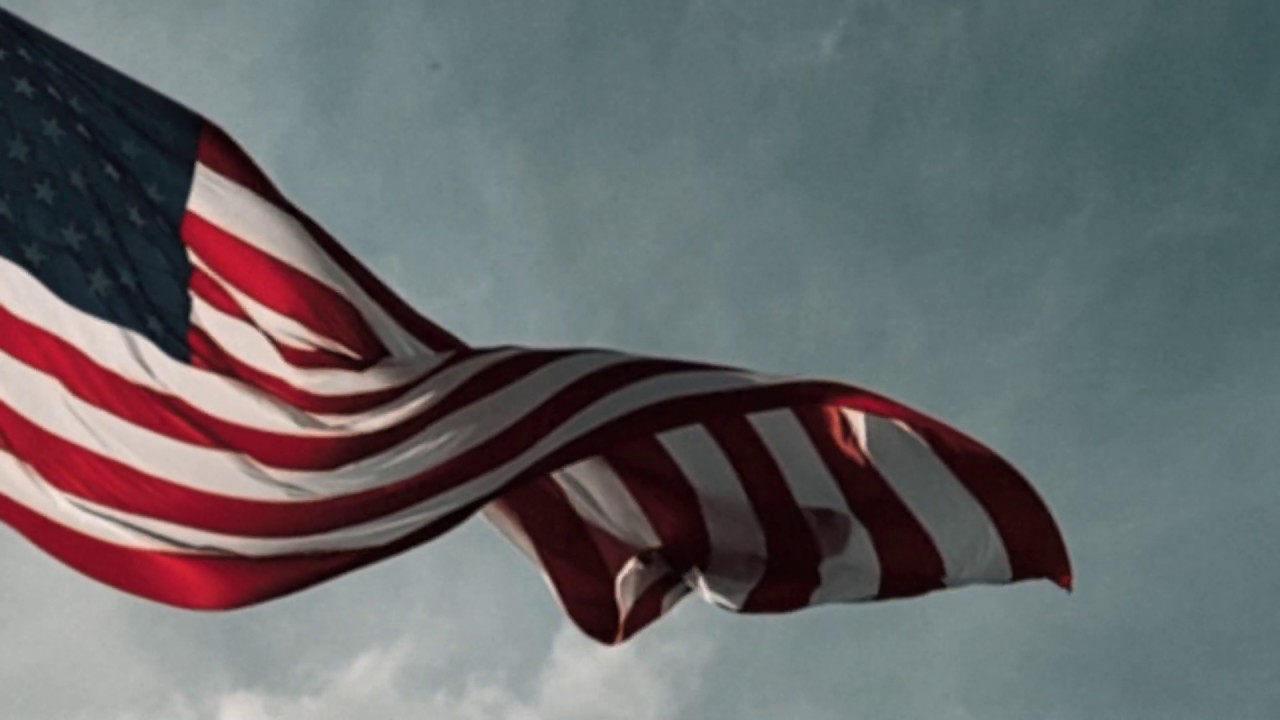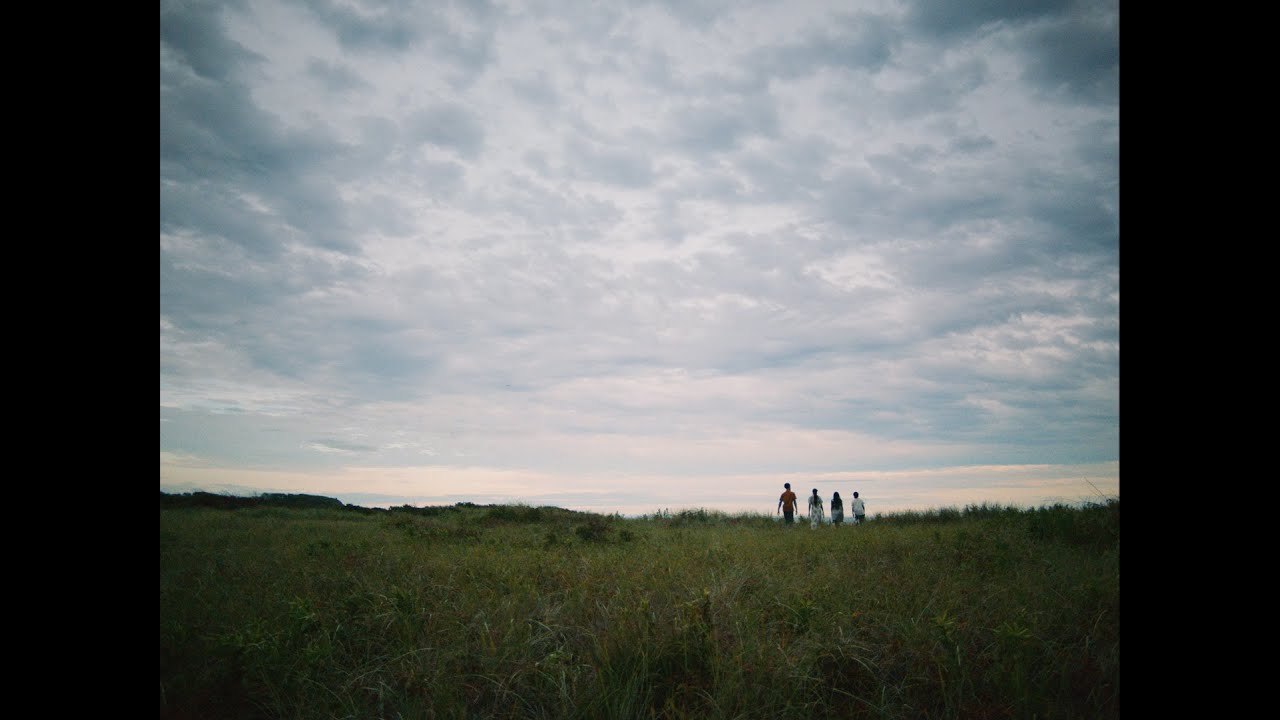Photo: Evans Richardson
The America that has always informed Sufjan Stevens’ music is mid-collapse. Its fabric, made up of folk tales and legends, is tattered past the point of restoration. “I had to do away with all my previous tropes,” he says of his new album The Ascension. “No stories, no characters, nothing representational, no metaphor and no self-mythology. I felt like the messages must be clear and coherent, almost editorial.”
Over the past two decades, he’s intertwined his music with the country’s sprawling mythology, writing delicately crafted and literary songs, populated by UFO enthusiasts and serial killers. As recently as his 2017 single ‘Tonya Harding’ he drew from that deep American well. “She’s the manifestation of the great American anti-hero. She’s just one character in this story of the American consciousness,” he says.
When he released ‘Tonya Harding’, he described her with pride as ‘indelibly American’. When I ask what he considers indelibly American today, he starts laughing. “Self-absorption? Entitlement? An inflated sense of worth? Inability to change? That’s really tough. We have this tendency to mythologise the American identity of the past, but now those mythologies don’t really align with the reality of the situation so people get angry and resentful and fearful.”
I bring up the upcoming presidential election and he sighs. “Well the thing’s just so disappointing to me, I wish there could be a revolution. I wish we could break it all down and build it all back. I wish that we could rewrite our constitution. I wish we could put ten-year olds in power.” He sighs again, before forcing optimism. “But anything is better than where we are now, so I’m hopeful about that. I’m also jaded and tired. Isolation and fear, it’s become so crippling here.”
Stevens announced his new record in July with the single ‘America’, a song that embodies the sound of that collapse. “Don’t do to me what you did to America,” he sings over and over like a mantra, his voice distorted with terrific and unearthly power, carried on an overwhelming wave of instrumentation that’s elegiac, psychedelic, beautiful and apocalyptic. It was in fact more prophetic than timely; he wrote it in 2014, “and then shelved it because I didn’t really understand what it was. The phrase ‘don’t do to me what you did to America’ was just coming out because it sounded cool, but I thought it was mean-spirited. Then the years went by. I realised, this is just how I feel! And it’s how I’ve been feeling for a very long time."
Eventually, as the warning signs gave way to the things they were warning us about – children held in cages, the so-called ‘Muslim ban’, inaction in the face of accelerating climate change, etcetera – he realised it was time to “embrace the tone and persona of that song.”
The rest of The Ascension flowed from ‘America’. Shortly after embracing its tone, he wrote ‘Video Game’, “which is also bitchy and mean-spirited, but I kind of felt empowered by it.” In the past, Stevens says, those sort of songs “weren’t really in my lexicon. I think I felt an obligation as an artist to be hopeful and generous and kind-spirited. I can engage in sorrow and self-pity and sadness, but anger was never my calling. But this time I think I just needed to embrace it. I felt like I had no choice. So, I did.”
In his personal life, things were changing too. He’d been kicked out of his Brooklyn studio “because the landlord was expanding or renovating or whatever,” and put all of his equipment in storage apart from some keyboards and a drum machine, a restriction that would go on to influence The Ascension’s sound. One day, he came home from a vacation to find his apartment infested with rats. “I thought, That’s it! This is over! New York can be a brutal place to live – it can be inspiring in the right mindset, but after a certain point you realise you can’t sustain it anymore.” He moved upstate to The Catskills, where he had been building a new studio. By then he’d spent two years on these new, ‘mean-spirited’ ideas, but it was only once he left the city that he had time to flesh them out. “It all came together in a matter of months. I knew all along what I was doing, but I just couldn’t finish it because I was displaced. There was too much of life’s distractions, so much content coming at me.”
With the America that Steven’s work had so far chronicled collapsing all around him, and his personal environment shifting more extremely than it had done for decades – “some parts of this album are a severance from the city” – his writing had to change. “A lot of my earlier songs were informed by my experiences in writing workshops, reading literature, using elements of fiction writing like ‘create a setting, create a backstory, show don’t tell.”
This time, however, the situation called for drastic change. “I decided to embrace catchphrases and cliches and figures of speech. Instead of being benign platitudes, I felt like they could speak for deeper wisdoms and act as beacons to help me work through all these issues. There’s been a loss of trust in institutions and governments and society and corporations, all of that is being called to question. I felt like I couldn’t really speak for all those issues objectively or abstractly or on a macro level, so I decided to just start writing in declarative statements, keeping it really simple.
“Every song title on the album is a cliché,” he continues, taking the record’s gorgeous opener ‘Make Me An Offer You Cannot Refuse’ as an example. “It’s like, you’ve been selling me all this bullshit, I’ve been buying it, and it’s not working, it’s creating disease, so sell me something that’s actually worth buying!” he says. He takes ‘Goodbye To All That’ as another example, named after Joan Didion’s 1967 essay about leaving New York that was itself named after Robert Graves’ 1929 war memoir, described by the author as ‘my bitter leave-taking of England’. “That phrase on its own is like ‘well that was fun!’ ‘Thank U, Next!’ ‘Keep calm and carry on!’ There’s such a proliferation of these phrases in our society and we shrug them off and find them meaningless, but right now I’m desperate for some kind of platitude that tells me where to go, and how to go about my business in a way that’s healthy and sustainable. These phrases are all carried down throughout the generations because they get us through the day.”
Perhaps this style of writing is a rejoinder to the kind of simplistic yet extraordinarily effective sloganeering that has been employed by the far right over the last few years; the kinds of things easily mounted on a bus or a baseball cap like ‘Make America Great Again’ and ‘Get Brexit Done’. “I can’t say I was consciously responding to it, but I think it’s clear that I was taking the cue, taking the opportunity to simplify and reduce. What if I use these slogans for something good?”

Photo: Evans Richardson
On The Ascension Stevens uses that platitude-based messaging as a way to create sense of our chaos, to indulge in the fantasy of ripping up the constitution and putting a ten year old in the White House, or to simply run away. “I think in a time of crisis, you find yourself in fight or flight mode, and this record is really about that state of existence,” he says. “Of wanting to push back or run away or escape.” He is aware, however, that sloganeering rarely offers an actual answer. “I think this album is somewhat crippling in a way. It’s an expository album, it’s working through arguments and posing challenges and grappling with crisis. But I don’t think there’s a lot of answers on this record, I think there’s a lot of commandments and declaratives and imperatives and ultimatums. That’s the driving force, the language is very clear, coherent and argumentative, but I don’t think there are any solutions.”
For Illinois, Stevens spent months delving into immigration records and history books and scouring internet chatrooms for users with interesting anecdotes about the Midwestern state. For The Ascension, he looked inwards, drawing inspiration from three esoteric philosophies: theosophy, which teaches that the purpose of human life is spiritual emancipation; anthroposophy, which postulates the existence of an objective and comprehensible spiritual world that is accessible to human experience; and Confucianism, which holds that human beings are fundamentally good and improvable through personal and communal endeavour. “My belief system is Orthodox Christianity, but I’m constantly reading about and borrowing from all different kinds of spiritual beliefs and religions. I don’t think the songs are directly inspired by these things, but they can be a template for how to manage a crisis. Theosophy says that knowledge of God can be achieved through a religious experience, or through intuition or higher consciousness, whereas anthroposophy borrows from theosophy then pushes it in the direction of science and education and the human experience. One of the key takeaways from anthroposophy for me is that it seeks to free the mind of human authority. I like that anthroposophy is about emancipation through the imagination. It’s religious, but it’s also very rooted in science and education. For me it’s a template in terms of understanding the problems of humanity.”
The Ascension is the sound of Stevens acting within that template, exploring what can happen when we “downsize our perspective and focus on what’s in front of us,” as he puts it. “What’s within arm’s reach that you can take care of? What can you change within your own kinetic sphere? I’m realising that there’s a recklessness and a futility in trying to take on our sense of disenfranchisement on a global scale. We can’t really solve the problems at that level, but we can solve the problems around us or within us. I think now is the time where we really have to focus on what’s true and pure.”
The record, with all its questions, orders and stock phrases, does not offer any solutions, but it does offer an articulation of the process that we’re all undergoing. “If we’re going to reach for any bright light of hope on this record it’s love, that’s the word I keep coming back to,” he says, before quoting some of the album’s lyrics. “’I must love myself’, ‘tell me you love me,’ I ‘wanna love you’, all these simplified catchphrases about love are the only glimmer of hope.
“Even though it sounds big, the ideas are very small,” he says. “They’re very simple, everyday phrases, but to me their resonance and their wisdom is much bigger.” It’s the biggest-sounding record of his career, full of enormous rushes of noise and cataclysmic dance breaks, yet its sound was influenced by restriction, by reducing his instrumental set-up to a drum machine and a keyboard when he was turfed out of his Brooklyn studio. In his daily life, he carries a mantra, ‘Keep it moving, keep it real, keep it true’. Up in The Catskills, he hears phrases with a similar sort of energy. “I hear a lot of ‘stay positive,’ ‘git ‘er done’. Like, ‘let’s just get through today and do the work that’s in front of you’.” It is testament to Stevens’ abilities that his music has become no less epic now that he’s redirected his gaze away from the great American sprawl and stripped his writing back to platitudes.
Towards the end of our interview, I begin to sense we’ve been giving America a little too much of a kicking. “Let’s focus on something good,” he insists. “It is a country of contrasts and a country of conflict, and I think within that conflict there’s the production of innovation that’s unparalleled anywhere else. Something incredible and amazing and beautiful could still come out of that conflict. It’s just unfortunate that it has to be so painstaking, but the brutality of the hierarchies here, the social injustice, the division, the inequities and inequalities, they’ve been there since the very beginning. It’s like, America’s not really the great democratic experiment, it’s a terrifying manifestation of the relentless pursuit of money and power!”
The Ascension offers more coping mechanisms than it does conclusions, however up in The Catskills Stevens is finding some solace. “You know something that’s missing on the record is the fidelity and wisdom of nature,” he says as we wrap up. “I think I overlooked that. That’s something that I’ve really come to terms with living with up in the country: nature is a balm and a source of inspiration and wisdom. I can see that it’s moving through cycles and patterns and systems that seem equitable and sustainable and seem true. It’s helping me get through the day, really. That’s something I think I forgot about for the 20 years I lived in New York, how glorious and beautiful the world is in which we live, that there’s such an expanse all around us that’s constantly speaking truth and hope and beauty.” Sufjan Stevens is not done with America just yet.





